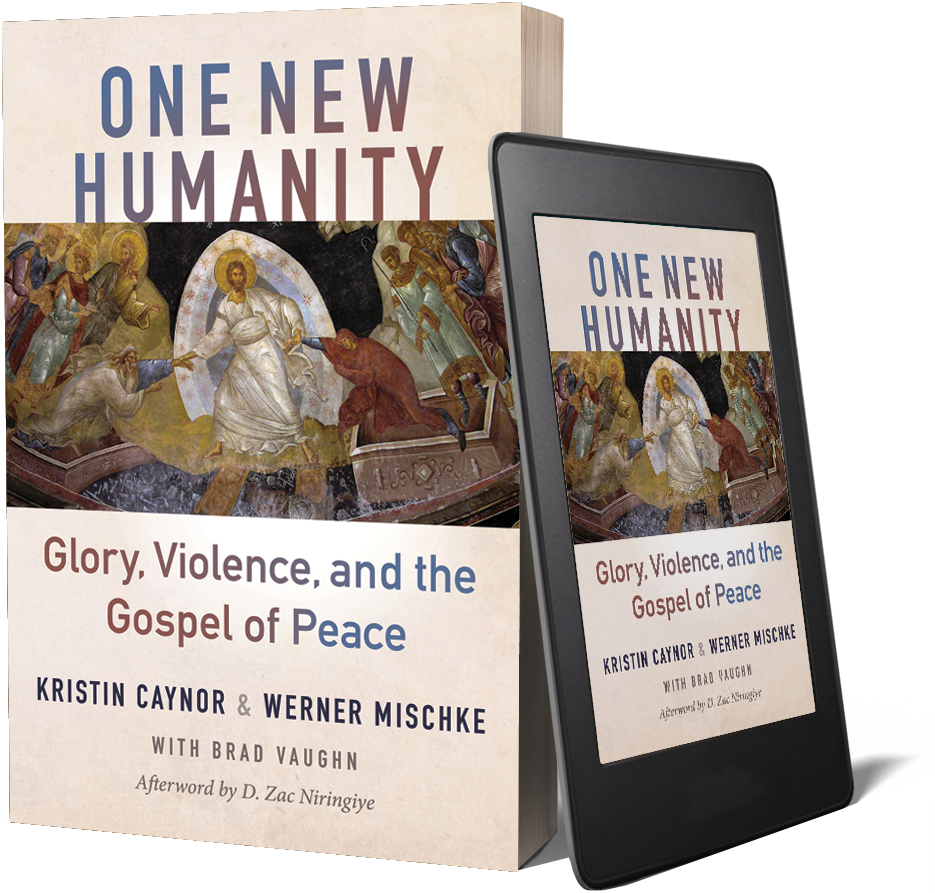Does One New Humanity unfairly critique Dispensationalism?
One New Humanity offers a critique of Dispensationalism in chapter 12, “The Homogenous Unit Principle: What Peace?” Some readers may ask, Are the authors unfairly singling out dispensational theology relative to its direct or indirect complicity with violence, conquest, or war?
First, let us recognize that all Christian theologies and traditions are manmade. All theologies are naturally influenced by a particular cultural and historical context. The relationship between Western culture and its theology is a two-way street; “the pollination goes both ways,” writes Adonis Vidu.1 Or as Lesslie Newbigin famously wrote, “We must start with the basic fact that there is no such thing as a pure gospel if by that is meant something which is not embodied in a culture. … Every interpretation of the gospel is embodied in some cultural form.”2
Second, we recognize that other theologies besides Dispensationalism have contributed to rationalizations for violence, conquest, or war. For example, as mentioned in this book: 1) In chapter 10 we discussed Constantinianism—“By This Sign, Conquer”—which brought to an end the three-hundred-year opposition of the early church to violence and killing; 2) in chapter 12 we discussed the Catholic-imperial papal decrees for the Doctrine of Discovery and colonization-conquest; 3) in chapter 8 we discussed the German Christian Movement that theologized the horrors of antisemitism and the Holocaust; 4) in chapter 12, we mention America’s two-hundred-plus-year history of slavery, which was seen as biblically justified by many American pastors; and 5) in chapter 11, we briefly discuss America’s “New Apostolic Reformation” that sanctioned the violent insurrection on January 6, 2021 at the US Capitol.
Other examples may be considered: Did Luther’s “Two Kingdoms” theology give de facto permission to the German Protestant church to be silent before the evils of Hitler’s Third Reich? Has Liberation Theology been sometimes used to sanction violence against the state? What about Reformed Theology? An Internet search using AI indicates several scholarly books that discuss the role of Reformed Theology in various bloody European wars over the past 500 years.
Humanity’s proclivity and thirst for violence is nearly unquenchable. Is it any wonder many Christian theologies can be found wanting relative to the ethical teachings of Jesus Christ and his gospel of peace? Willard Swartley thoroughly examines this theological deficit in his Covenant of Peace: The Missing Peace in New Testament Theology and Ethics.3
Yes, in this book we critique Dispensationalism, but not because it is unique in its tolerance for violence and war. Rather, we critique Dispensationalism because we believe that its legacy overlaps so significantly today with the beliefs and behaviors of American exceptionalism or imperialism, Dominionism, and Christian Zionism.
We emphasize Dispensationalism because, in our view, it casts a long shadow of influence over American evangelicalism at the popular level—and, by extension, global Christianity. We are challenging popular Dispensationalism-informed narratives like the fictional, blockbuster Left Behind series of LaHaye and Jenkins. Why? We believe they remain etched into the popular imagination of American evangelical Christianity.
In 1942, in the midst of Germany’s dark idolatry of Hitler and the Third Reich, Dietrich Bonhoeffer—under intense pressure to compromise with a church ‘in partnership with empire’—writes in his Ethics, “The Sermon on the Mount is either valid as the word of God’s world-reconciling love everywhere and at all times, or it is not really relevant for us at all.”4
Any Christian tradition or theology is problematic when it ignores or domesticates Jesus’s Sermon on the Mount.5 Any tradition or theology should be questioned when it decenters Christ and his most beautiful life, his relational ways, his shameful yet reconciling death, his glorious resurrection, and his ascension as King. Any tradition or theology is problematic when it turns our gaze away from the Lamb of God, who still speaks: Take up your cross—and live! Blessed are the poor. Welcome outsiders. Love your enemies. Let all the peoples worship. Love mercy. Spurn worldly power and status. Join me in gospeling peace—to those far and those near. Become truly human—I am the way. I’m sharing my glory with all who follow Me.
===============
FOOTNOTES
1. Adonis Vidu, Atonement, Law, and Justice: The Cross in Historical and Cultural Contexts (Baker Academic, 2014), xiv.
2. Lesslie Newbigin, The Gospel in a Pluralistic Society (Eerdmans, 1989), 144.
3. Willard M. Swartley, Covenant of Peace: The Missing Peace in New Testament Theology and Ethics (Eerdmans, 2006).
4. Mark Thiessen Nation, Discipleship in a World Full of Nazis: Recovering the True Legacy of Dietrich Bonhoeffer, citing Bonhoeffer, Ethics, DBWE 6, 243.
5. See our discussion of the Scofield Reference Bible in chapter 12 of One New Humanity.
